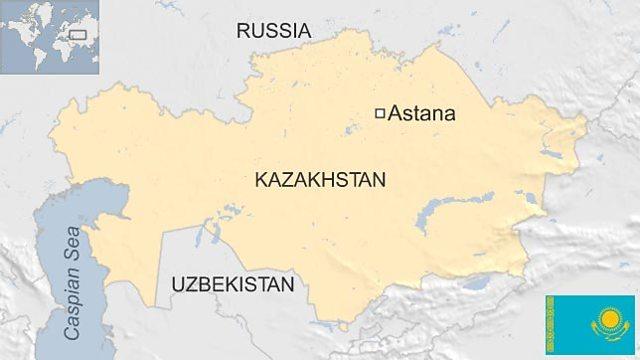Nursultan: Kazakhstan renames capital Astana after ex-president
- Published
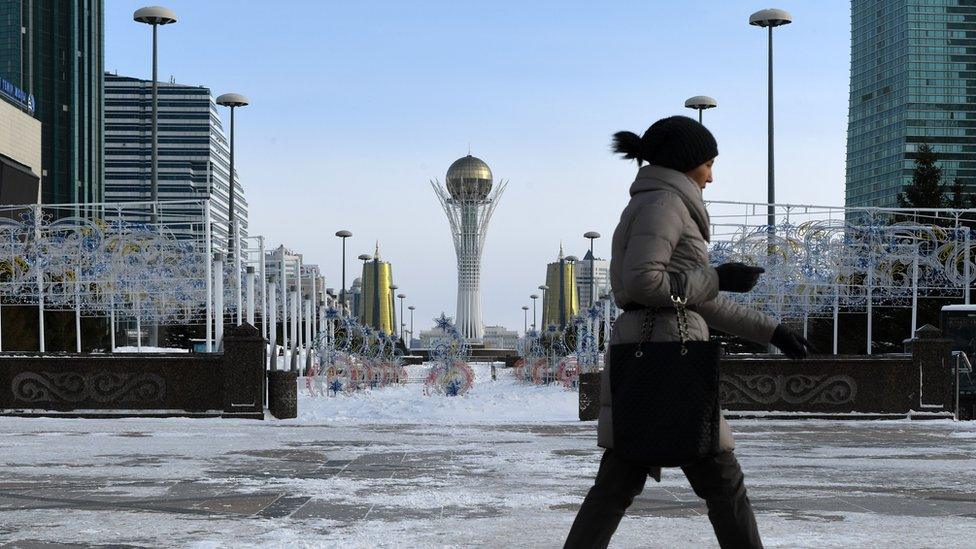
The Baiterek Tower, which resembles a giant egg atop a tree, is one of the city's landmarks
Kazakhstan has renamed its capital Astana to Nursultan to honour outgoing leader Nursultan Nazarbayev, who unexpectedly resigned on Tuesday.
The change was announced after Kassym-Jomart Tokayev was sworn in as president, promising to seek his predecessor's opinion on key decisions.
Mr Nazarbayev, 78, served nearly 30 years as leader of the oil-rich nation.
Meanwhile, his eldest daughter has been elected speaker of the upper house of parliament.
Dariga Nazarbayeva's promotion to the second most powerful position in the country raises her profile as a potential successor.
Her father, who is head of the governing party, will remain at the helm of the influential security council and will hold the formal title Leader of the Nation.
Analysts say it is too early to say who is going to run or to declare potential favourites in next year's election. Mr Tokayev and current Prime Minister Askar Mamin are also seen as possible contenders.
New president, new name for capital
Mr Tokayev was sworn in as president some 24 hours after Mr Nazarbayev's surprise resignation. He will serve for the remainder of the presidential term which expires in April 2020.
"[Nazarbayev's] opinion will have special, one might say priority, importance in developing and making strategic decisions," said Mr Tokayev, who had served as speaker of the upper house of parliament.
He said the world had witnessed a "historic event" with the resignation of Mr Nazarbayev, the only man to lead Kazakhstan since it emerged from the collapse of the Soviet Union in the early 1990s.
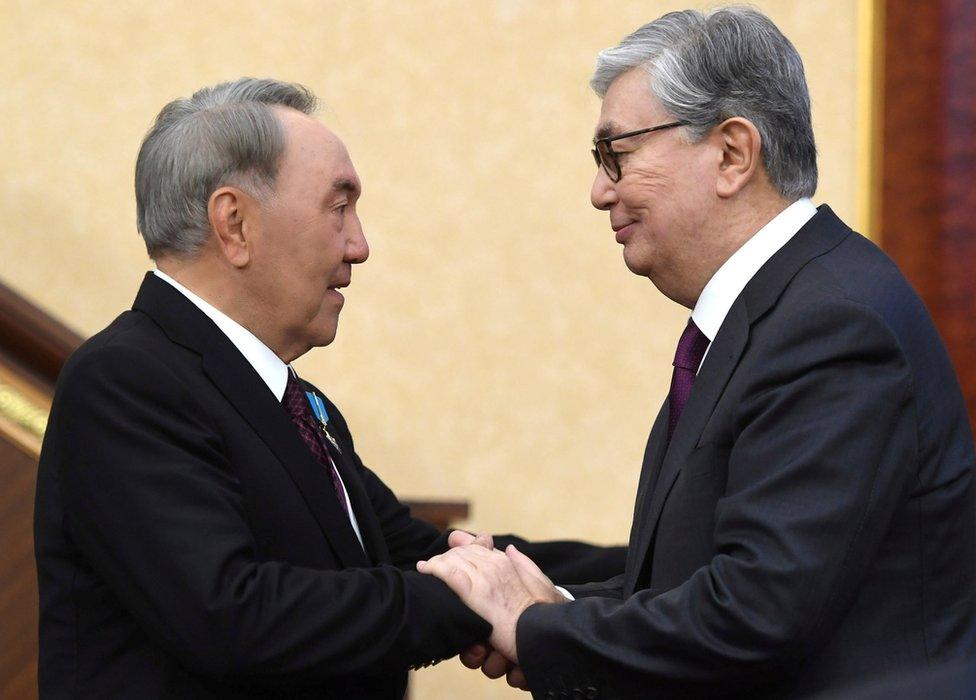
Mr Tokayev (right) shakes hands with Mr Nazarbayev during a session in a parliament

Mr Tokayev then proposed changing Astana's name "in honour of the first president" and, shortly afterwards, parliament adopted a law making the renaming official.
Astana, which means "capital" in Kazakh, became the capital of Kazakhstan in 1997, taking over from Almaty, still the country's commercial hub and largest population centre.

Renaming cities
In the former Soviet Union, now Russia, authorities renamed Königsberg to Kaliningrad, after Mikhail Kalinin, one of the leaders of the Bolshevik revolution. Also, Stalingrad became Volgograd after Stalin's death in 1953
In Germany, Karl Marx Stadt became Chemnitz in 1990 after the country's reunification
More than 100 cities in India have changed their names since the end of British rule, including Madras to Chennai. Most recently, Allahabad was renamed Prayagraj, apparently to restore its ancient identity as a major Hindu pilgrimage centre
The capital of the Democratic Republic of Congo was renamed in the 1960s from Léopoldville, named after a Belgian king, to Kinshasa, the name of a village that existed in the same area
In Mozambique, the capital was named Maputo following the country's independence in 1975. Until then, it was known as Lourenço Marques after the Portuguese navigator

Daughter seen as possible successor
Mr Nazarbayev's 55-year-old daughter Dariga Nazarbayeva, a former deputy prime minister, has long been considered as a potential successor.
She once led the country's main television station, external and founded her own party in the 2000s, before it merged with her father's party.
Ms Nazarbayeva made no mention of the forthcoming elections in her brief acceptance speech on Wednesday, Reuters news agency reports.
- Published19 March 2019
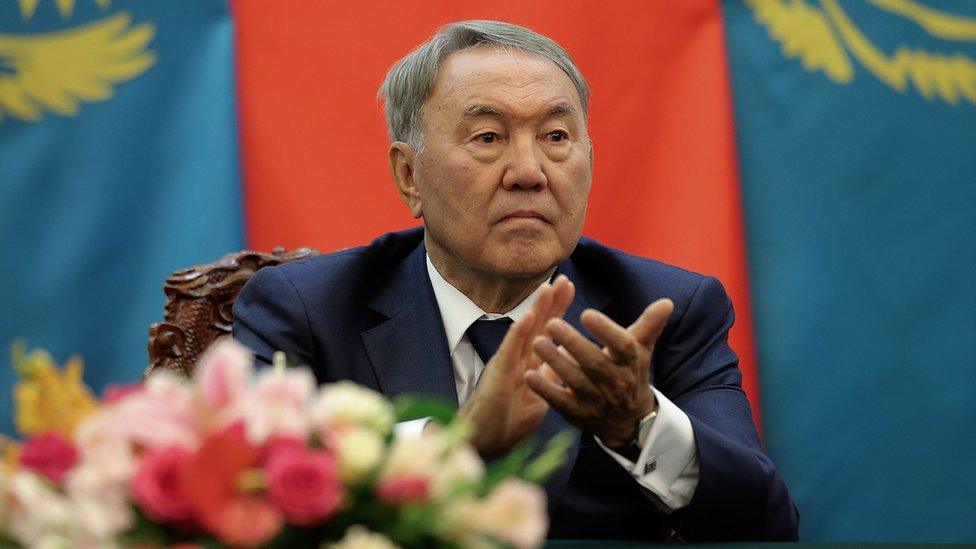
- Published23 June 2017
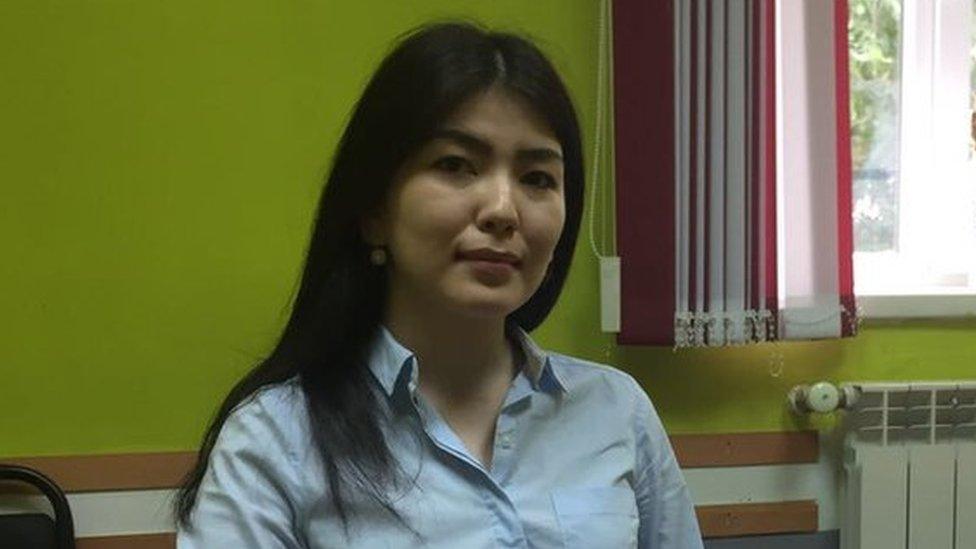
- Published24 March 2023
